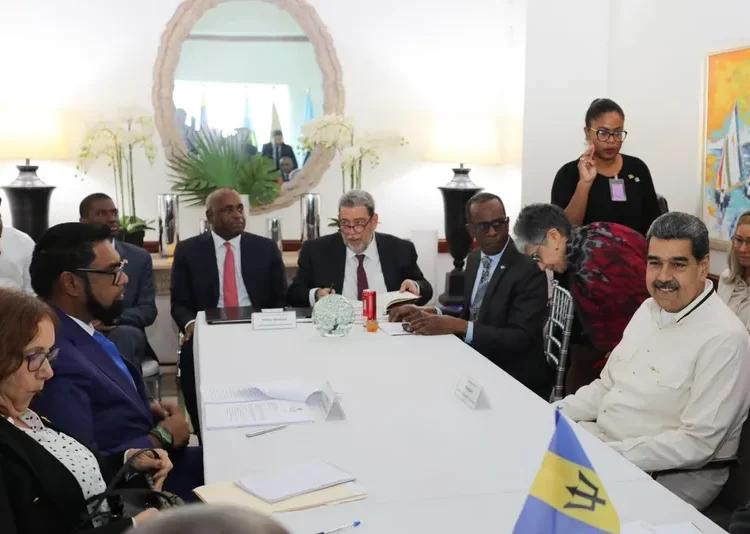On Thursday (14), the governments of Venezuela and Guyana agreed not to threaten or use force against each other in the context of the dispute for the Essequibo region and also in other cases.
The commitment was announced hours after the first meeting between the two presidents, which took place in Saint Vincent and the Grenadines and worked as the beginning of talks to deescalate territorial tensions in the border area.
In a document listing 11 topics, the countries also announced another meeting within three months in Brazil. On Thursday, the Brazilian government was represented by Celso Amorim, President Lula's special advisor on foreign affairs. He was one of the mediators in the process with Colombia, Celac and Caricom.
“Venezuela and Guyana agreed that the two states will abstain, both by word and action, from intensifying any conflict or disagreement originated from controversies between them,” reads the document.
Despite the diplomatic contacts, Guyana did not give up on calling the International Court of Justice to solve the dispute. Venezuela also retreated from demanding sovereignty in the Essequibo region, and avoiding the ICJ's competence to rule on the issue.
That was the first time the two presidents, Venezuela’s Nicolás Maduro and Guyana’s Irfaan Ali, met to talk about the Essequibo situation, an oil and mineral-rich border territory with 160 thousand km².
The dispute, which dates back to XIX, gained new chapters after the discovery of huge marine oil reserves on its coast. Guyana allowed concessions to the US company Exxon Mobil to explore the resources, displeasing Caracas, which accuses its neighbor of acting unilaterally in a territory whose sovereignty is unclear.
The US thanked Brazil
On Thursday (14), the US State Department informed that state secretary Anthony Blinken talked by phone with Brazil’s minister of foreign affairs, Mauro Vieira, thanking “for its diplomatic leadership in seeking a peaceful resolution of the dispute between Venezuela and Guyana over the Essequibo region.”
“Secretary Blinken reaffirmed the United States’ position that the land boundary between Venezuela and Guyana should be respected unless—or until—the parties reach a new agreement—or a competent legal body decides otherwise.”
This Thursday's meeting was mediated by Latin-American and Caribbean entities and did not have US participation.




